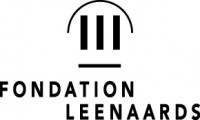Cie Philippe Saire
Av. de Sévelin 36
1004 Lausanne
Suisse
in permanent residency at Théâtre Sévelin 36
+41 21 620 00 12 info@philippesaire.ch
Open-air première at Festival de la Cité, Lausanne, July 2nd, 1991. Rerun at Festival de la Cité, Lausanne, July 1999.
The idea for this choreography has its roots in a long-held fascination for “Midsummer Night’s Dream ” – probably due to the highly choreographic character of Shakespeare’s play, and the spatial involvement, the liaisons, the comic mix-ups and the cases of mistaken identity which are woven into it. Very soon however, it was realized that although the Philippe Saire Dance Company possessed the means to bring the story to life in choreography, “Midsummer Night’s Dream ” as a source of inspiration should remain in the background, and the resulting creation be allowed full liberty to draw further and further away from the point of departure.
Two mains lines of investigation emerged : one of the interactions of fate and power, the other the desire to imitate. The first stems from the way the characters in “Midsummer Night’s Dream” are systematically manipulated by external forces, their actions being more due more to the actions of others than to their own will. The second line is suggested by the tendency of each character to mimic another, just as long as desire remains unsatisfied.
The action is imbued with that strange after-the-party mood, hanging between illusion and reality.
The time when tiredness melts barriers, when relationships become simultaneously clearer yet more complex. The time of rash impulse and unforeseen consequences, when we no longer know whether our actions will fade as a dream, or confront us still when day dawns.
Dissimilar elements combined into a new universe. Through their dissonance, these elements hold a dialogue which causes them to lose their initial meaning and purpose. In this state they occupy an undefined space where, as in dreams, questions of significance and truth are irrelevant.
“Those things nearest to us are least perceptible. It is precisely the hidden aspects of our daily existence which – unconsciously – we cling to the closest. Yet the only way to discern them clearly is to stand back at a distance”.
Full movement images of quiet undertones. Disturbingly beautiful. At times grotesque, at times poetic, at times bizarre. In “Vie et Moeurs…” Philippe Saire has hit on the mean and cynical elements of Shakespeare’s Midsummer Night’s Dream. And how ! Through his acrobatic sporty and coded language of movement he has always found images that speak a lot for themselves and which move along the edges of verbal and non-verbal communication. In earlier works there has been at least one such image. The new production is full of them. A masterwork.
Eva Bucher, Tages Anzeiger, 11.4.1992 (Theater Westend, Zürich)
Sisyphos dreams in the summernight. Philippe Saire is telling us of the ambivalence of human communication, the conflict between passion and boredom. He visually describes the myth of Sisyphos for Albert Camus and so suggests one has to accept ones destiny. The great dancers subtley convey this into movement… The huge audience in the vast city square enthusiastically celebrated all the way through.
Roland Langer, Frankfurter Rundschau, 2.8.1991 (Off-Tat Festival Mousonturm, Frankfurt).
The Swiss Company of Philippe saire is hardfy short on style… His choreography slides through a variety of contrasting moods and emotions. His stage events are wrapped around a story that allows the performers to transform themselves into interesting characters… The dancers skid from funny to serious and move from dashing athleticism to limpid tenderness with a deft versatility.
Allen Robertson, Time Out, 6-13.05.1992 (Turning World Festival, London)
The Philippe Saire Dance Company invited its audience on an enchanted trip into the world that exists only at the end of the party. That time when your body is exhausted, but something keeps you going, keeps you moving.
The tremendous precision that the Company achieved during the entire performance helped relate the dream-like state that Saire’s inspired choreography captured. In addition to the ethereal quality of movement, though, a great amount of athleticism was displayed. Each couple executed many non-traditional spinning shoulder lifts where the woman draped herself around her partner in unlikely positions.
Laura Atlantas, The Michigan Daily, 16.10.1992 (University of Michigan, Ann Arbor)
Choreography
Philippe Saire
Dancers 1991
Marc Berthon,
Charles Linehan,
Philippe Saire,
Julie Salgues,
Rahel Vonmoos
Dancers 1999
Nabih Amaraoui,
Manuel Chabanis,
Karine Grasset,
Nicholas Pettit,
Corinne Rochet
Music
Maurice Ravel
Set and light design
Jean-Marie Bosshard,
Christian Yerly
Costumes
Nadia Cuénoud
Choreography
Philippe Saire
Dancers 1991
Marc Berthon,
Charles Linehan,
Philippe Saire,
Julie Salgues,
Rahel Vonmoos
Dancers 1999
Nabih Amaraoui,
Manuel Chabanis,
Karine Grasset,
Nicholas Pettit,
Corinne Rochet
Music
Maurice Ravel
Set and light design
Jean-Marie Bosshard,
Christian Yerly
Costumes
Nadia Cuénoud










